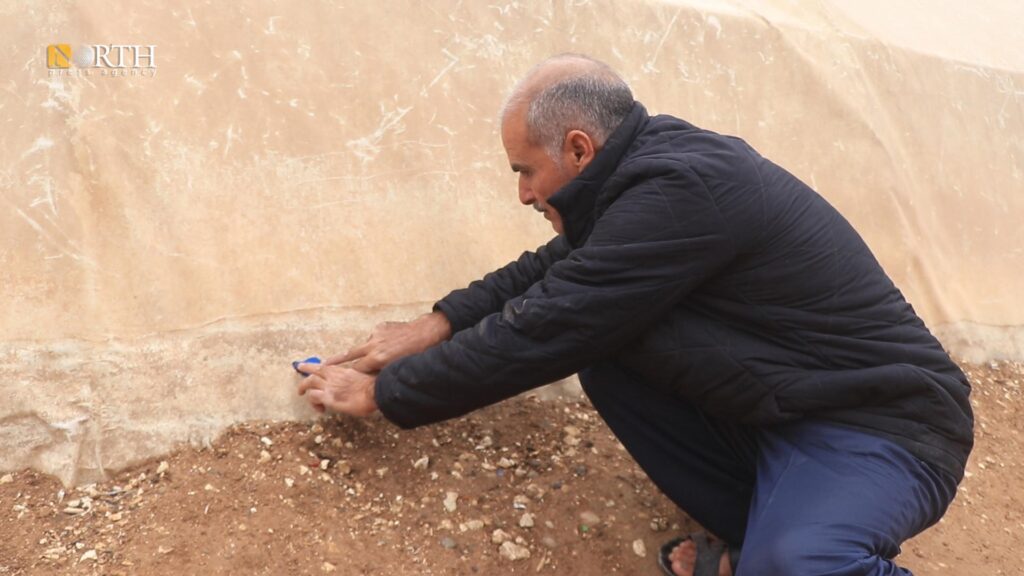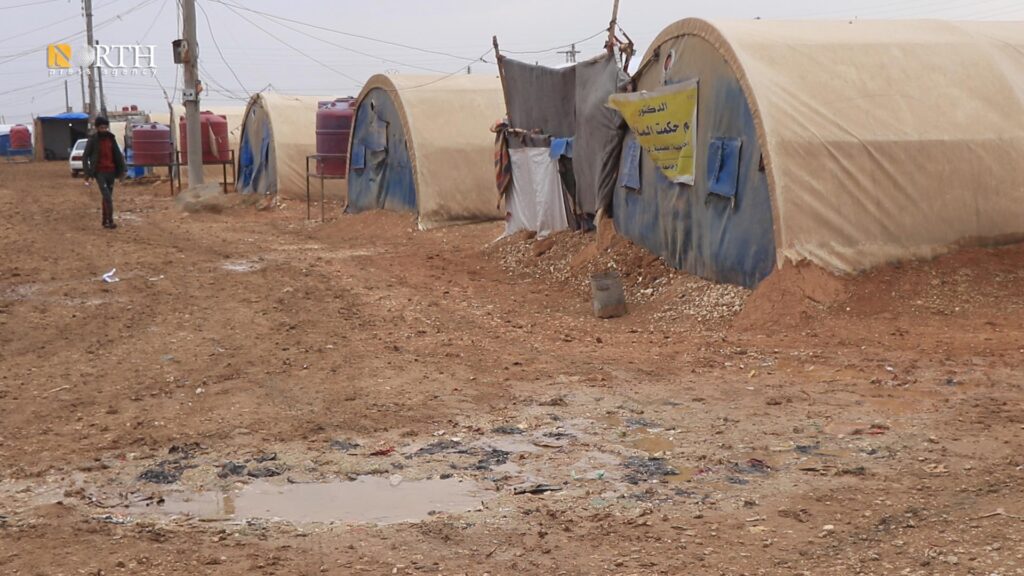HASAKAH, Syria (North Press) – Among adjoining tents, many installed randomly, Abdul Hamid al-Nasser, 50, patches his tent with nylon after water was leaked in following first rainfall recently.
Abdul Hamid, whose profession is a teacher, is going to spend his first ever winter in the Washokani camp, west of Hasakah city in northeastern Syria, arriving nearly two months ago after leaving an accommodation center in the city.
Finishing his patching work, Abdul Hamid told North Press: ”The tent is worn out; it has no flap door nor a heater stove. Yesterday when it showered, water leaked in.”
“The tent had no electricity; I need a 200 m cable to get power whose cost I cannot afford,” he added.

After three years of its establishment, the camp had been founded hurriedly to house IDPs of Sere Kaniye (Ras al-Ain) in the aftermath of the invasion by the Turkish forces and the affiliated Syrian opposition factions of the Syrian National Army (SNA) in October 2019. However, residents of the camp still suffer from hard living conditions and instability.
The coming winter seems just like the previous ones – full of burdens on the IDPs – as the first drops of rainfall reveals how fragile the tents of the camps are which was turned into a quagmire of mud.
Al-Nasser desperately looks at his tent that shelters eight persons as he continues to patch the holes. He could not find a better shelter. “God is great,” he says.
Washokani camp houses 16.396 people living in 1.989 tents, according to a figure obtained by North Press from the camp’s management which is run by the Autonomous Administration of North and East Syria (AANES).
Amid such dire conditions, NGOs remain inactive towards services and aid, according to officials of the camp.
Though the camp houses a large number of IDPs, international organizations do not provide humanitarian aid, because they consider it an “illegitimate” camp.
Barzan Abdullah, co-chair of the camp’s administration, said that 1.900 tents need be replaced with new ones owing to weather conditions.
IDPs suffer from hard living conditions in the camp, notably in winter, due to lack of necessary tools and needs amid inaction and disregard by the international organizations under the “pretext” of their inability to cover all camps’ needs and no funds available, according to Abdullah.
The camp’s manager noted that they receive a lot of complaints from IDPs saying they could no longer live in the camp. This comes amid the AANES’ inability to cover the IDPs’ needs in the camp.
Amid this status quo, IDPs living in the camp prepare to have a difficult winter. They are fortifying their tents to prevent the leaking of water into their tents.
Last year, rainfall aggravated the plight of IDPs in the camp. Rain was let in and caused immeasurable damage.

To avert such a calamity, Salima Muhammad, 65, is holding a shovel to berm her tent and remove water from its top.
The latest rainfall caused difficulties, but that did not prevent children to play outside, with most of them wearing no coats.
Under her tent which she shares with 10 members of her family, Salima complains of rarity of aid given by NGOs.
“Winter is very cold here. Up to now, they have not distributed heating fuel and have not replaced our tents which we have had them for three years. Many families here are short of blankets and sleeping mats,” she added.

